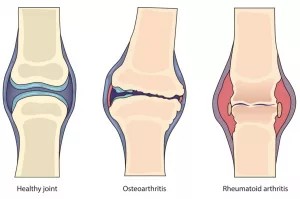Imagine this: You wake up, and your big toe feels like someone set it on fire and whacked it with a hammer for good measure. You wince, maybe mutter a few choice words, and try to hobble to the bathroom. If you know this feeling—if you’ve ever danced the gout two-step—then you already get how out-of-control life can feel when a gout flare hits. But here’s the bigger, messier question that’s probably been bouncing around your mind: Can I get disability for gout?
Let’s set aside the textbook definitions for a minute. This isn’t just about “joint pain” or “swelling.” We’re talking about a condition that can bulldoze your daily life, wreck your plans, and sometimes leave you staring at the ceiling at 3 a.m. wondering how the heck you’re supposed to hold down a job when you can barely walk. You’re not alone in asking, and honestly? It’s a question that deserves a real answer, not some copy-paste legalese.
So, grab a cup of something warm, settle in, and let’s talk—human to human—about what you need to know if you’re thinking about disability for gout. We’ll get into what the law says, what real people have gone through, all the “does gout qualify for disability” details, and the honest risks and rewards of taking this step.
Understanding Gout: It’s Way More Than Just a Sore Toe
What Is Gout, Really?
If you’re here, you probably already know gout isn’t just “a little arthritis.” It’s more like your body’s chemistry going haywire, with uric acid crystals building up in your joints—usually the big toe, but sometimes your knees, ankles, or even fingers. Those crystals? They’re like tiny daggers, and the pain can be off-the-charts. I’ve met people who say childbirth was easier than a gout flare. That’s not exaggeration—it’s just the brutal truth.
Symptoms, Causes, and How It Can Progress
At first, you might get a “gout attack” now and then. Random, right? But over time, if things aren’t managed, those attacks get more frequent and stick around longer. Red, hot, swollen joints can make even pulling on socks a Herculean task. And if the uric acid keeps building up, you might see lumps (called tophi) form under your skin. Eventually, some folks end up with permanent joint damage or even kidney issues.
Living With Chronic Gout: A Glimpse Into Real Life
A friend of mine—let’s call him Mike—was a mail carrier for years. Loved walking, loved chatting with his neighbors. But after his third or fourth brutal attack, he found himself stuck at home, foot in a bucket of ice, watching the world go by. “I felt useless,” he told me. “Like, what do I have left if I can’t even work?” Mike’s story isn’t rare. Gout can sideline even the most stubborn, hard-working people.
How Gout Affects Daily Life and Work
Let’s be honest: When your foot feels like it’s exploding, even making coffee is a struggle. Gout doesn’t just hurt—it steals your energy, your mood, your plans. Missed workdays. Sleepless nights. That gnawing fear about when the next attack will hit. Some people can power through, but for others, it’s like their whole life is on pause.
Physical Limitations and Mental Stress
It’s not just about the pain. Losing mobility means losing independence. Can’t drive? That’s a problem. Can’t stand long enough to cook dinner? That chips away at your confidence. And don’t even get me started on the anxiety and depression that can sneak in. It’s a whole package of challenges.
Does Gout Qualify for Disability?
So, here’s the heart of it: Does gout qualify for disability? Short answer: Sometimes, yes—but it’s not simple. The Social Security Administration (SSA) doesn’t have a special box labeled “gout.” Instead, they look at the bigger picture—how your symptoms limit what you can actually do.
How the SSA Looks at Gout
The SSA uses something called the “Blue Book,” which is like their official rulebook for what counts as a disability. Gout isn’t listed by name, but severe, chronic gout often gets grouped under “inflammatory arthritis.” That means you’ll have to prove your gout is as bad—or worse—than other types of arthritis that do get listed by the SSA.
Disability Eligibility for Gout: What You Need to Know
Basic Eligibility Criteria
Here’s where things get real. To get disability, you need to show that your gout is:
- Medically diagnosed (with records to back it up)
- Severe enough that it stops you from working
- Expected to last at least a year (or be life-threatening)
It’s not enough to just say, “My foot hurts.” You’ve got to have doctor’s notes, test results—maybe even X-rays or bloodwork showing those uric acid levels. The more proof, the better.
Proving Your Gout Keeps You From Working
This is the kicker. The SSA wants to see that you can’t do your old job—or any job, really—because of your gout. Can’t stand for long? Can’t walk more than a few steps? Can’t use your hands during a flare? The more details, the stronger your case.
The SSA’s Blue Book and Inflammatory Arthritis Listings
Here’s where gout and the law do a weird dance. Since gout isn’t in the Blue Book by name, you have to “fit” your case into the rules for inflammatory arthritis. This is where medical records—and sometimes, a good lawyer—are your best friends.
Comparing Gout and Osteoarthritis: How Hard Is It to Get Disability?
Let’s pause for a second and talk about a related question I hear a lot: How hard is it to get disability for osteoarthritis? Actually, it’s kind of the same issue. Osteoarthritis is in the Blue Book, but you still have to prove it messes up your daily life enough. Whether it’s gout or osteoarthritis, the SSA wants cold, hard evidence that you can’t work anymore.
| Condition | Listed in SSA Blue Book? | Key Evidence Needed | Chance of Approval (Anecdotal) |
|---|---|---|---|
| Gout | No (but can be under inflammatory arthritis) | Medical records, proof of impact on work, specialist notes | Moderate (if very severe and well-documented) |
| Osteoarthritis | Yes (explicitly listed) | Medical records, X-rays, functional limitations | Moderate to High (if severe and well-documented) |
Real-Life Stories and Case Studies
Let’s get personal. I’ve talked to dozens of people who’ve tried to get disability for gout. Some made it through, some didn’t. One woman, let’s call her Sarah, had flares so bad her husband had to carry her to the bathroom. She had stacks of doctor’s notes, years of failed treatments, and a specialist willing to testify. After two appeals, she finally got approved.
Then there’s Tom, who thought his word was enough. He didn’t keep up with doctor visits, missed a couple of appointments, and didn’t really know how to fill out the forms. He got denied—twice. The lesson? The more organized and detailed you are, the better your odds.
How to Apply for Disability for Gout: A Step-by-Step Guide
Getting Your Ducks in a Row: The Prep Work
Before you even touch an application, start collecting your medical records. Every appointment, every prescription, every X-ray—keep it all. If you have a rheumatologist or specialist, ask them to write a letter explaining how your gout affects your life. The more backup you have, the stronger your case.
Talking to Your Doctor About Disability
This can be awkward. Nobody wants to seem like they’re “giving up.” But your doctor has probably seen it before. Be honest. Tell them how gout stops you from working, not just during flares but in-between, too. Ask if they can help document your limitations. The best doctors don’t just treat your symptoms—they help you tell your story.
The SSA Application Process: What to Expect
Ready to fill out the forms? You’ll need to describe, in detail, how gout stops you from working. Don’t be shy. Be specific. Can’t stand for more than 10 minutes? Say it. Can’t drive, type, or lift anything heavier than a gallon of milk? Put it down.
Physical Exams, Interviews, and All That Paperwork
After you apply, the SSA may send you to a consultative exam. It’s not as scary as it sounds, but it’s important. Show up. Be honest about your worst days—but don’t exaggerate. Just tell it like it is. After that, there might be phone interviews, more paperwork, and, sometimes, a long wait.
What’s “Residual Functional Capacity” (RFC) and Why Does It Matter?
This is a fancy term for “What can you still do, if anything?” The SSA will try to figure out if there’s any job you can still do—maybe a desk job, maybe something part-time. Your RFC is based on your medical records, your doctor’s opinion, and your own words.
Common Challenges and How to Overcome Them
Let’s be real: Most people get denied the first time. That’s not because you did something wrong—it’s just how the system works. Common reasons? Not enough medical evidence, forms filled out wrong, or the SSA thinking you can still do “some” kind of work.
How to Avoid the Most Common Pitfalls
- See your doctor regularly—gap-free records look better.
- Be honest, but don’t downplay your limitations.
- Keep a “pain diary” for a couple months, if you can.
- Ask your doctor to write a detailed letter about your condition.
- If you get denied, appeal—most successful claims win on appeal, not the first try.
Tips for Appeals and Finding Help
Don’t be afraid to ask for help. There are lawyers who specialize in disability claims, and most don’t charge unless you win. Some non-profits and advocacy groups can walk you through the process or even represent you for free.
Balancing the Benefits and Risks of Applying for Disability
The Upside: Why Disability Might Be the Right Choice
Let’s face it: If you can’t work and you’re drowning in bills, disability can be a lifeline. It means monthly income, access to healthcare (Medicare/Medicaid), and maybe a little peace of mind. For some, it’s the only way to keep food on the table and the lights on.
The Downside: What You Should Know Before You Apply
But it’s not all rainbows and sunshine. The process can be slow—sometimes a year or more. There’s paperwork, stress, and a whole lot of waiting. Some people feel embarrassed or worry about what friends or family will think. And if you’re approved, you may have to live on less money than you earned before.
Other Options: Not All or Nothing
If you’re not ready to apply for disability, there are other ways to get help. Talk to your boss about accommodations—maybe you can work from home, change your schedule, or get special equipment. Local charities, churches, and government programs sometimes help with food, rent, or medical bills while you’re figuring things out.
Expert Insights and Trustworthy Resources
What the Doctors Say
If you’re wrestling with “does gout qualify for disability,” I can tell you this: Most rheumatologists get it. They see the toll gout takes—physically and mentally. Don’t be afraid to ask for their opinion, or for a letter explaining your limitations. The more “expert” your case looks, the more trust you build with the SSA.
When to See a Specialist
If your regular doctor isn’t familiar with disability paperwork, or your gout is especially gnarly, a rheumatologist can be a huge asset. Their notes carry weight, and they can help connect the dots between your symptoms and your daily struggles.
Legal and Advocacy Help
Disability law can be a maze. If you feel lost, you’re not alone. There are organizations—like the Nolo Legal Encyclopedia—that break down the process in plain language. Some nonprofits even offer free legal help or advice over the phone. Don’t be afraid to reach out.
Wrapping It All Up: You’re Not Alone, and You Have Options
Let me just say it again: Gout isn’t “just” pain. For many, it’s a life-changing, day-stealing, hope-sapping condition that deserves respect—and real answers. Whether you’re just starting to think about disability, or you’re already in the thick of paperwork and appointments, know this: You’re not alone.
Keep your head up, ask for help, and remember—there’s no shame in fighting for what you need. If you’ve been through this process, or you’re just starting, I’d love to hear your story. What worked for you? What surprised you? Share your experiences or ask your questions below—because nobody should have to go through this mess alone.
And hey, if you’re still on the fence about applying, that’s okay. Take your time, do your homework, and trust your gut (or your foot, as the case may be). Whatever you decide, know that you’re doing your best, and that counts for a lot.






















Leave a Reply
You must be logged in to post a comment.